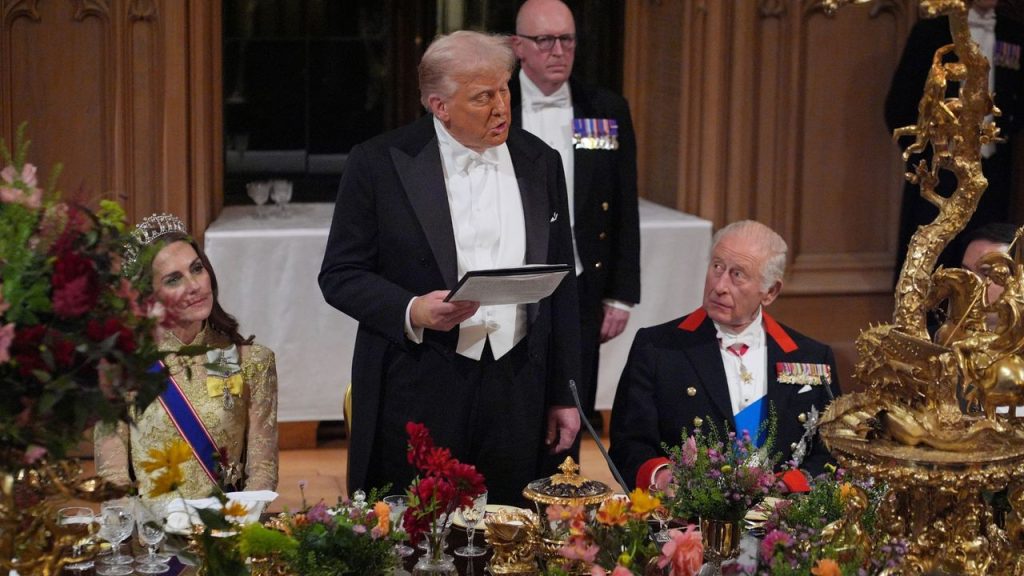As a “fully paid-up admirer of the royal family” it is easy to see what Donald Trump is getting from his state visit to the UK, said Alexander Larman in The Spectator. He has been “given every kind of pomp and respect that he surely sees as his due”. At last night’s glittering state banquet in Windsor, the president described the visit as “one of the highest honours” of his life.
From the King’s perspective, his “ingress into Britain is less welcome”, and it is clear the government “will never be allowed to forget the help that Charles has given them”.
‘A day of maximum peril’
The initial invitation to Trump in February was “part of a calculated charm offensive” by Keir Starmer “at a time when the US seemed destined to abandon Ukraine and tear up Europe’s post-Second World War security order”, said the Financial Times. Last night was the “centrepiece”, but today is “the day of maximum peril”.
Trump is at the prime minister’s country home, Chequers, where he and Starmer are likely to discuss Ukraine, Gaza and trade, said Chris Mason on the BBC. There is also – “awkwardly” – the topic of the late convicted sex offender Jeffrey Epstein. This afternoon’s scheduled press conference could be a “rollercoaster” for Starmer next to Trump and his “boundless capacity for unpredictability”.
‘Consequences of American risk-taking’
Having taken the risk of inviting such a deeply divisive figure, the UK government will be keen to point to tangible results for Britain. Chief among these is £150 billion worth of US investment, including financial commitments from Microsoft and Google.
But even this raises “one burning question”, said The Times: “what is America getting in return?” Trump’s administration and the “tech bros” have made their demands clear: they want to scrap the digital services tax that brings in around £900 million a year for the Treasury, reform copyright law and get regulators off their back.
The US president’s trip “was supposed to offer a vote of confidence in the British economy” and be a “moment of respite” for Labour, said Will Dunn in The New Statesman, but it’s hard to avoid the imbalance of power in the relationship. “What we do is of little consequence to the White House, but we have to deal with the consequences of American risk-taking. We are a mouse sharing a bed with a walrus.”
Britain is keen to point to its own ‘tangible results’, but the US administration has made their demands clear
